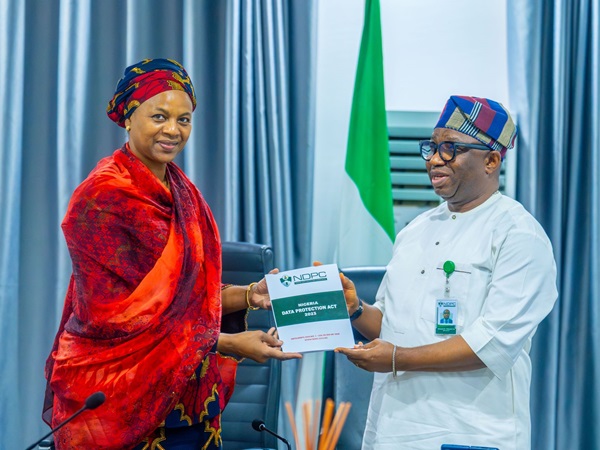
Momentum is building nationwide around President Bola Tinubu’s recent directive mandating all ministries, extra-ministerial departments and agencies (MDAs) to rigorously safeguard information in line with the Nigeria Data Protection Act (NDP Act) 2023.
In response, strategic collaborations are taking shape, most notably with the Medical and Dental Council of Nigeria (MDCN) and the Kano State government.
Speaking at the maiden International Civil Service Conference 2025, Tinubu emphasised the transformative potential of data in Nigeria’s development. “Data is the new oil, but unlike oil, its value increases the more it is refined and responsibly shared,” he said. “I therefore direct all ministries, extra-ministerial departments and agencies to capture information rigorously and safeguard it under the Nigeria Data Protection Act of 2023.”
The president’s remarks reaffirmed his administration’s commitment to transparency, accountability, and innovation through data governance. He also encouraged data-driven decision-making and international collaboration. “We must let our data speak for us. We must publish verified datasets within Nigeria and share them in internationally recognised repositories. This will allow global benchmarking organisations to track our progress in real-time and help us strengthen our position on the world stage,” Tinubu stated.
The NDP Act, signed into law on June 12, 2023, is a major milestone in Nigeria’s journey toward securing personal data and advancing its digital economy, aligning with the President’s broader eight-point agenda.
In response, the Nigeria Data Protection Commission (NDPC) has intensified its engagements with stakeholders. On a recent working visit to the NDPC headquarters in Abuja, the registrar of the Medical and Dental Council of Nigeria (MDCN), Prof. Fatima Kyari led a delegation to seek technical support from the commission. She was received by the national commissioner of the NDPC, Dr. Vincent Olatunji.
Kyari commended Olatunji for his leadership in advancing Nigeria’s data protection framework and noted the critical importance of securing sensitive health records maintained by the MDCN. She expressed concern about the potential national security implications should such data be compromised. She emphasised the MDCN’s readiness to adopt best practices and sought guidance on digital health guidelines, governance frameworks and policy alignment. She also requested support in building staff capacity and institutionalizing a data protection culture within the health sector.
Olatunji welcomed the collaboration, describing it as timely and necessary given the sensitive nature of health data. He cited the risks of data breaches, including misdiagnoses, social stigmatisation and even preventable deaths. He assured the MDCN of the commission’s full support in embedding lawful and ethical data management practices into its operations.
To formalise the partnership, the NDPC and MDCN have agreed to establish a joint working group. This team will oversee the drafting of a memorandum of understanding (MoU), marking the beginning of a long-term collaboration to strengthen data protection in the medical sector.
In a related development, the NDPC also received a high-level delegation from the Kano State government led by the State Commissioner for Science, Technology and Innovation, Dr. Yusuf Kofarmata. The visit, undertaken on behalf of Governor Abba Kabir Yusuf, reflects Kano’s proactive approach to implementing the NDP Act at the subnational level.
During the meeting, Olatunji reaffirmed the commission’s commitment to supporting Kano’s data governance goals. He provided the delegation with insights into Nigeria’s data protection ecosystem and highlighted opportunities for capacity building and local implementation.
According to a statement from the NDPC’s head of media, Itunu Dosekun these engagements are part of a broader strategy to ensure that the principles of the NDP Act are adopted across all sectors and regions, safeguarding citizens’ data while promoting a secure and innovative digital economy.


